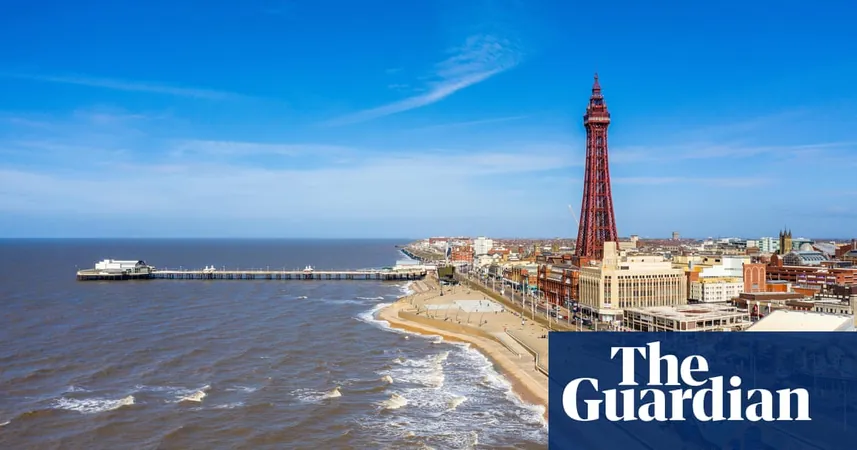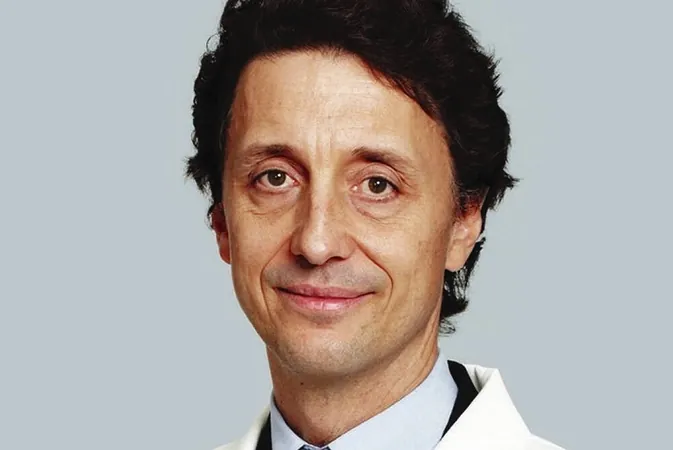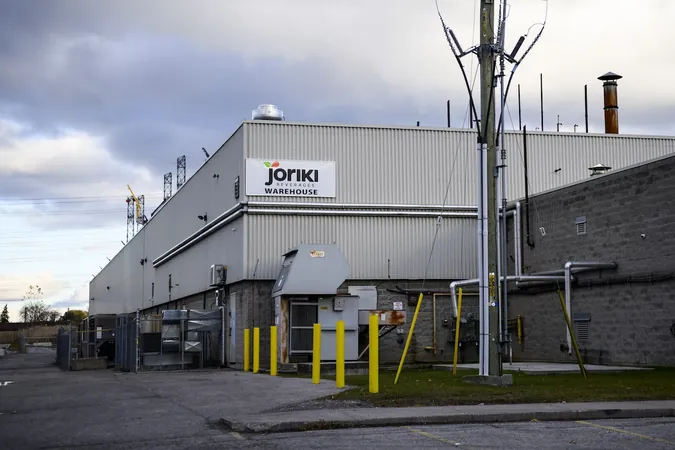
Blackpool's Life Expectancy Crisis: A Stark Reality Check in the UK
2024-12-09
Author: Charlotte
In a shocking revelation, Blackpool has claimed the unwanted title of having the lowest average life expectancy for men in the UK, surpassing Glasgow for the first time in 20 years. According to a recent report from the Office for National Statistics (ONS), men born in Blackpool can expect to live just over 73 years, a sobering six years short of the national average in England.
This stark statistic sheds light on a troubling trend in modern Britain: wealth is clearly linked to health, while poverty has tragic consequences. The disparity in life expectancy starkly illustrates a “clear” north-south divide in the UK, with men in affluent areas, such as Hart in Hampshire, living a full decade longer than their counterparts in the most deprived communities.
Unfortunately, this gap has widened since the COVID-19 pandemic, which has severely impacted public health. The ONS reports that Blackpool’s average life expectancy for men has plummeted by 18 months since 2019, raising alarms amongst health professionals.
The roots of Blackpool's health crisis can be traced back to its once-thriving tourism industry, which flourished in the early 20th century. As holidaymakers increasingly opted for sunny destinations abroad, property speculators capitalized on the decline, converting once-vibrant guesthouses into houses in multiple occupation (HMOs). Today, Blackpool boasts some of the cheapest, yet most dilapidated housing in the UK, often filled with renters who are in poor health. For instance, a one-bedroom flat near the iconic Big Dipper rollercoaster can be rented for just over £100 a week—less than half the average rent across the country.
Public health officials, such as Dr. Arif Rajpura, director of public health for Blackpool, grapple with the grim reality of the town’s health statistics. He points out that Blackpool's mortality rate for those under 75 is the highest in England for diseases such as cancer and cardiovascular ailments. Dr. Rajpura’s team actively resists the proliferation of fast-food outlets and alcohol sponsors, recognizing their detrimental impact on community health.
Meanwhile, Dr. Andy Knox, a GP and population health leader for the NHS in Lancashire and South Cumbria, emphasizes that systemic change is critical in addressing these growing inequalities. His call for a comprehensive overhaul of public health funding and policies—such as the implementation of a sugar tax—highlights the urgent need for transformation.
It's vital to understand that the high rates of long-term sickness and substance abuse are not merely choices but symptoms of a much deeper, complex reality. Blackpool has the highest proportion of children in care in the country, almost three times the national average, which contributes to a cycle of poverty, poor health, and low educational attainment.
Data from recent council reports reveal that Blackpool faces an alarming crisis, with four times the national average of drug-related deaths, nearly double the smoking-related deaths, and the highest rates of alcohol-related deaths and serious mental illnesses in England.
Experts agree that addressing health crises early can avert later complications. However, budget cuts enacted during austerity measures have severely limited preventative health initiatives. Blackpool's funding has seen a drastic reduction compared to wealthier areas, leading to approximately £1,400 less per person to address health and care needs than a decade ago.
Karen Smith, director of health and care integration at Blackpool Council, underscores the urgency of shifting focus from reactive to proactive health measures. "When the entire world feels like it’s on fire, making those shifts can be incredibly challenging," she says.
As Blackpool grapples with its alarming health crisis, the community calls for urgent action to break the cycle of poverty and ill health, before more lives are tragically cut short. It is a plea that resonates far beyond the seaside town—serving as a clarion call for equal access to health and opportunity across the UK.









 Brasil (PT)
Brasil (PT)
 Canada (EN)
Canada (EN)
 Chile (ES)
Chile (ES)
 España (ES)
España (ES)
 France (FR)
France (FR)
 Hong Kong (EN)
Hong Kong (EN)
 Italia (IT)
Italia (IT)
 日本 (JA)
日本 (JA)
 Magyarország (HU)
Magyarország (HU)
 Norge (NO)
Norge (NO)
 Polska (PL)
Polska (PL)
 Schweiz (DE)
Schweiz (DE)
 Singapore (EN)
Singapore (EN)
 Sverige (SV)
Sverige (SV)
 Suomi (FI)
Suomi (FI)
 Türkiye (TR)
Türkiye (TR)